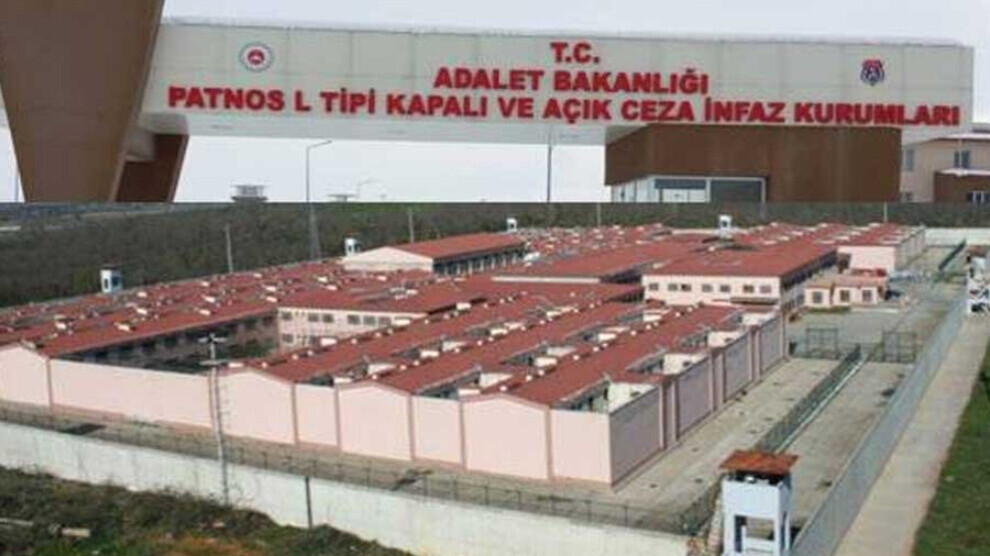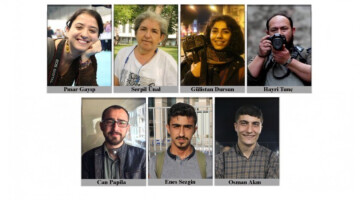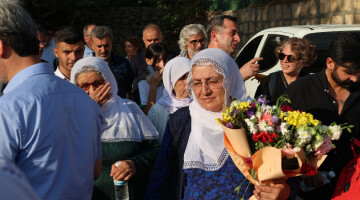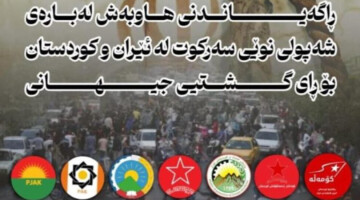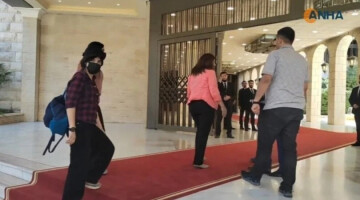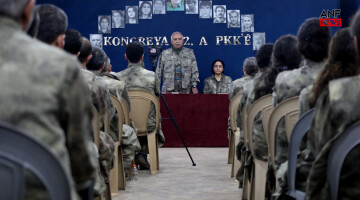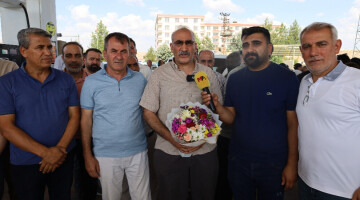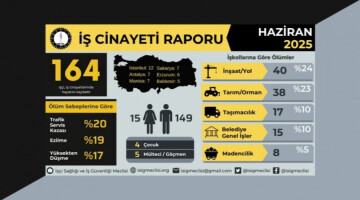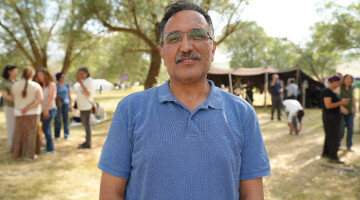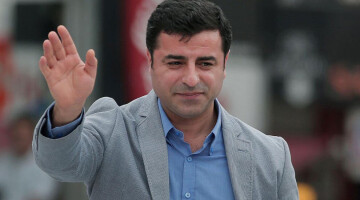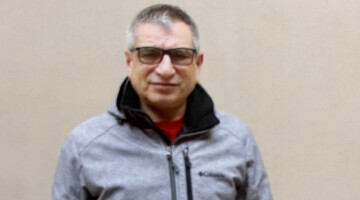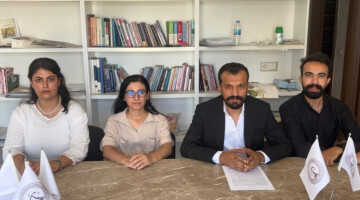After the serious case of torture in Patnos prison, the PKK and PAJK called for protests. Political prisoners Mizgin Kayıtbey, Lale Kabişen and Nazlıcan Barışer were beaten by around 40 guards on 1 September and then tortured with the so-called pig shackles for four hours. The prison authorities were also involved in the torture.
This torture means people are tied together at the neck, legs and arms under tension on their backs in a curved position. Every stretch reflex leads to strangulation. Pig shackle is a torture method used by Islamists in particular to punish "infidels" and is a direct reminder of the crime of Malatya, when three Christians were tied with pig shackles by Islamists in 2007 and then had their throats cut like cattle for slaughter. This method was systematically used in the 1990s by the so-called Turkish Hezbollah, a para-state terrorist group.
The PKK and PAJK Committee said in a statement that this latest attack on prisoners constituted "an attack on the movement's freedom line, and especially on the women's freedom line as well as on Rêber Apo [Abdullah Öcalan]. Everyone must take a serious stand in the face of these crimes."
"Prisons are laboratories of the system of power"
The statement said: "Prisons are the laboratories of the system of power. For this reason, prisons are always the first place to test special warfare methods. Depending on the success of the measures tested in this laboratory, the state will attempt to apply them to society. When it comes to prisons, what the enemy fears most are organized structures."
"Organized structures should be destroyed"
The statement added: "The AKP-MHP fascism is trying to achieve results by trying to destroy our organized structures in prisons. Special warfare methods are used to break the resistance of our comrades, keep them away from the fight and make them regret their choices. The enemy knows that organizing is the basis for resistance because it promotes the socialization of people. Therefore, the organization in the prisons should be eliminated and our comrades weakened.
But the enemy was not successful in this plan. Since they were unable to achieve their goal, this time they tried to target our comrades individually. Although the prison sentences of many of our comrades have been served, the denial of their release and reprisals in prison are intended to force them to regret their political actions. The Hizbulkontras (Turkish Hezbollah) serve as enforcers for the AKP-MHP regime."
"If there are no mass protests, this torture will spread to society"
The statement continued: "In the 1990s, the state murdered many of our people using the Hizbulkontra organization. These people were tortured to death with pig shackles. Now the AKP-MHP fascism has revived this brutal torture method from the 1990s. It had our comrades Nazlı Barışer, Mizgin Kayıtbey and Lale Abişer tortured with pig shackles by guards in Patnos Prison. We see this as part of the special war policy against our comrades in jail, as an attack on Rêber Apo and the line of free society embodied in free women. Everyone must take a serious stand about what was done to our comrades in Patnos Prison. The AKP-MHP fascism is experimenting on our comrades with its special war policy. If there are no serious protests against these practices, they will try to further develop this special war policy and apply it to society. This can then no longer be prevented. Rêber Apo says: 'The liberation of women is the liberation of society.' For this reason, the ruling powers turn against Rêber Apo."
The statement went on to quote Abdullah Öcalan, who said: "Since human life only has meaning when it is free, the place where one lives without freedom is always a dark prison."
The PKK and PAJK called on "our people and the families of prisoners to be vigilant and sensitive to the oppression and injustice suffered by our comrades in prisons and by Rêber Apo."

